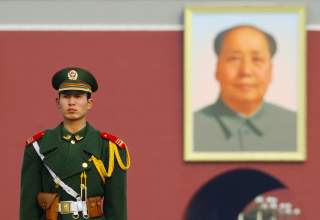China Isn't Rising—It's Merely Outlasting Other Nations
China has been a hegemon and source of civilization for at least twenty centuries; its rise is not new.
At stake is nothing less than the way in which we conceive of international relations. The East Asian region was as vast and long lasting as was the European region. Yet in many ways the patterns of conflict, the patterns of interaction, and the norms, institutions and ideas that developed in East Asia were quite different from those in Europe. As scholars explore this rich history through the lens of international-relations theory, the unquestioned universality of actors, interests and conditions is seen to be far more contingent or conditional than is currently accepted in conventional international-relations scholarship.
For nearly three centuries, the baseline for thinking about international relations has been provided by balance-of-power theory. But this practice is no longer tenable. Concentrated power is not “unnatural.” The hegemonic, unipolar structure of the current international system is not historically unusual, and its effects should therefore not be theoretically surprising. Paying careful attention to the normative order and institutions of an international system is as important for understanding how unipolar systems work as is the concentration of power.
Given the changes in the international system and the central place of the United States, there is almost no chance that China will return as the unquestioned hegemon in East Asia. Too much has changed for that to happen, and the United States—even as it adjusts to changing circumstances—is not going to disappear from the region. The United States remains too central, too powerful—and American (and Western) ideals have become too deeply accepted around the globe—for it not to be important. The United States and China need to figure out how to live together in the Pacific. Both navies are strong and growing, and the United States is not used to having a naval peer to deal with. That is a big issue, and both Washington, DC and Beijing need to work carefully over the coming decades to figure out how to get along.
David C. Kang is Professor of International Relations and Business at the University of Southern California. His latest book, Arms Races, Costly Signals, and American Grand Strategy to Asia in the 21st Century, will be published by Cambridge University Press later this year. You can follow him on Twitter at @daveckang.
Image: Soldier in Tiananmen Square. Flickr/Creative Commons/Richard Fisher

